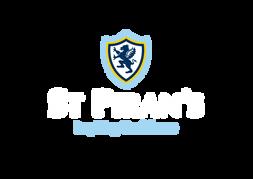Pre-school Building Strong Foundations



If you walk through a forest, you'll notice that every tree is unique. Their branches stretch in different directions, their leaves vary in size, and they grow at their own pace. But one thing all trees have in common is that they start by growing strong roots. The same is true for our Pre-school children. Each child develops in their own way and at their own pace. Before they can grow new skills and reach new milestones, they need strong roots a solid foundation to grow and develop new skills and learning. In Pre-school we focus on building these foundations to support their journey into school and beyond

Understanding the World
Mathematics

Expressive Arts and Design
Literacy
Personal, Social and Emotional
Communication and Language
Physical
Without these foundations, the branches of learning will be harder to grow

Sequencing past events
Using marks for a purpose
Noticing patterns in songs and stories
Using phonic knowledge to write words
Building a love of books and stories
Hearing and distinguishing phonic sounds
Recalling stories and experiences
Adding storylines into play
Recognising and representing their own name
Talking about what their marks represent
Repeated refrains
Speaking to others clearly
Noticing and discussing illustrations
Singing and exploring musical rhythms
Developing vocabulary

Blending/segmenting orally and visually
Rhyme and rhythm of songs and stories
Distinguishing and name sounds around them
Understanding what a question is
Attentive listening
Back and forth interactions
Develop intonation, facial expressions, rhythm and phrasing
Discussing quantity, shape and pattern
Understanding instructions Asking and answering questions
Showing experiences in imaginative play
Sharing what they notice around them
Develop an ‘I can’ attitude to new learning
Working with others to create/play developing team building and idea sharing
Overcoming setbacks
Understanding who they are in the world
Believe others will listen
Share ideas without fear of being wrong
Show compassion and care towards others
Take part in team games
Recognise the impact of their choices on others
Being confident to ask for help
Negotiate and compromise with others
Independencedressing, feeding, toileting, drinking etc.
Show confidence in new social situations
Engage with other children and adults
Notice similarities and differences
Observe others to guide social interactions

Express emotion
Build secure attachments
Turn take with others
Recognising how they feel
Understand need for boundaries and why
Build new friendships
Build secure attachments
Throw, catch, transport equipment
Recognise risk and complete tasks safely and independently
Understand their body and make decisions to keep it healthy
Hold a pencil and write words
Use media to express ideas and make representation
Use a variety of tools to create for a purpose
Show control when drawing to represent
Express needs in relation to hunger, tiredness
Be healthy and how/why
Dressing and undressing independently
Manipulate one handed tools

Being confident to ask for help
Look after their own needs
Use vocabulary of movement and actions
Joining curves and lines to enclose a space
Move with control
Identifying parts of their body
Moving hands in coordination and independently of each other
Showing balance and co-ordination
Understand risk and ask for help
Cross their midline and pivot from their shoulder and elbow
Show spatial awareness
Recognise body needs and toileting
Recognising body needs and toileting
The St Piran’s habits are:
These habits are key to children developing the abilities and attitudes of strong learners and support progress in all areas of their learning and development

Children thrive when all areas of development and school habits are supported, helping them grow into happy, content, and independent learners.

It is important to recognise each child's individual needs and achievements. We take note of the children's interests to make their learning fun and engaging.

We plan around the children, introducing new concepts and skills through thoughtful invitations. We also support and challenge previous learning through meaningful provocations. Learning in Early Years is holistic, meaning one invitation may cover multiple areas of development.
Our wonderful staff actively engage in children's learning by listening, modelling, questioning, and sharing in their awe, wonder, curiosity, and exploration.
We support children in making connections, sharing ideas, building relationships, and making sense of their experiences.
We encourage repetition of skills and time for children to explore in their learning as this supports young minds to make secure neuron connections.
Play is the most important way children learn, develop and refine skills Einstein said, “Play is the highest form of research” Throughout the natural world, animals learn through play It is open-ended, and gives opportunities and self challenge, with limitless possibilities and endless interpretations.
Play supports:
If your child comes home saying they "just played," rest assured— it was so much more than that!

Thank you for taking the time to learn about Pre-school and how we lay the foundation for your child's school journey.

